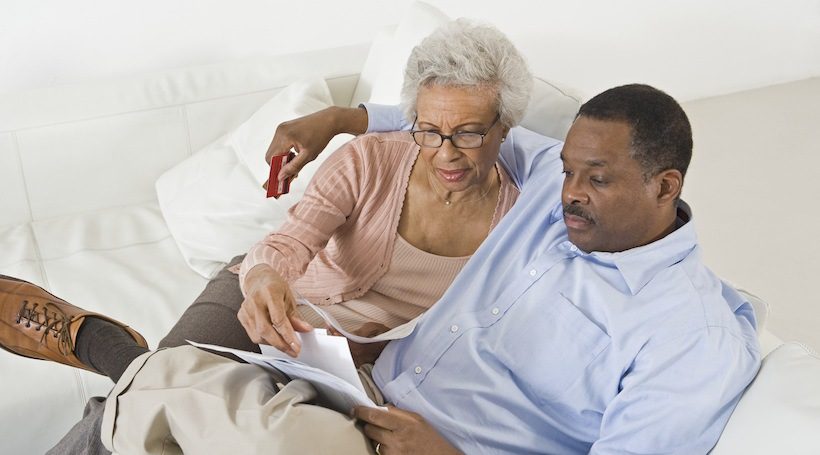Hearing the words “It’s cancer” can be terrifying and overwhelming. SJ cancer experts share what you should – and shouldn’t – do after a cancer diagnosis.
DON’T: Dwell on stages
“Try not to focus on the actual stage as much as what we’re going to do to treat it and how you’re going to cope with the new diagnosis,” says Rachel Levenbach, MD, of Regional Cancer Center Associates Mount Holly. “Everyone is different, and how they respond to treatment is different.”
“Patients like a concrete answer like, ‘What stage is it? Is it stage 1, stage 2?’ and they get focused on that. With each cancer, the stage is very different. Stage 4 in one type of cancer may mean something different for another type. Just because someone has stage 4 or metastatic cancer doesn’t mean we can’t treat them or they can’t live a good quality of life. Some patients with stage 4 breast cancer can live five, 10-plus years.”
DO: Know that survival rates are in your favor
“In the 1930s, if you were diagnosed with any kind of cancer, your chances of survival were about 25 to 35 percent. Now, regardless of the stage of disease or type of disease, the average survival rate is approximately 65 percent,” says Arnold Baskies, MD, a surgical oncologist at Virtua and chairman of the board at the American Cancer Society.
“Every year for the last 20 years, there’s been about a 1.6 percent improvement in survival year over year,” he says. “If you look at the most common cancer among women – which is breast cancer – in 1975, if a woman was diagnosed with breast cancer her chances of survival were about 75 percent. A patient diagnosed with breast cancer today has a survival rate of over 90 percent. The strides we’ve made in terms of diagnosis and treatment are incredible compared to even five years ago.”
DO: Seek a second opinion
Getting a second opinion can help you feel more sure about your diagnosis and treatment plan – and in fact, most doctors recommend it.
“I definitely encourage second opinions if a patient wants one. Sometimes, you need to hear it again so it either confirms what I’m saying, or maybe someone has a different take on how treatment is going to go and the patient may like one plan over the other,” says Levenbach. “I always say to patients, ‘It’s like buying a dress – you don’t always want to buy the first one you see, and you need to look at another one before you make a decision.”
But just because a second opinion is a smart move doesn’t mean that seeking out a third, fourth or even fifth opinion is a wise choice, cautions Levenbach.
“At that point you’re delaying the care,” she says. “By the time you get into all these doctors to see everyone, you’re delaying the time we would have started treatment.”
DON’T: Go it alone
“It’s important to have someone with you for an appointment, if possible. Whether it’s a friend or family member, when you’re getting this new diagnosis you won’t be able to remember everything we’re telling you,” says Levenbach.
“Having someone with you as a second ear is always helpful.”
Levenbach also recommends patients bring a list of questions to the appointment and not to be afraid to call after an appointment if they have additional questions – most doctors are happy to answer them, regardless if you’re in the office.
“I always tell patients to let me know what I can write down. If they’re sitting and writing notes, they’re not completely listening, because they’re focused on the notes,” she says.
“We always have a copy of the pathology report we can give them, but I would encourage them to make sure a doctor goes over it with them, because there’s a lot of stuff in there that is complicated, and you really want the main points.”
DON’T: Be scared of side effects
“Many people are concerned they’re going to be completely bed-ridden from their treatment or they’re going to
be vomiting all the time – those are probably the most common myths about chemo,” says Preeti Sudheendra, MD, a medical oncologist at MD Anderson Cancer Center at Cooper. “One of the frequent questions we get is, ‘Am I going to lose my hair?’ I think a lot of people think it’s a given and sometimes, it’s not the case at all.”
There’s a wide spectrum when it comes to side effects, adds Levenbach, and every patient will react differently. And even if a patient does have some not-so-great side effects from chemo or radiation, there are a variety of medications that can help keep symptoms at bay.
“Fifteen years ago, patients were home throwing up after chemo, and that should not occur at all now, because we have such good anti-nausea meds,” says Levenbach. “It’s important to know every patient is going to have different side effects and respond differently, and we’ll tell you the most common, but we have so many supportive measures that help improve those side effects.”
DO: Get out of bed and related treatments
Cancer and chemotherapy can cause fatigue in patients, but so can the stress of a diagnosis.
“Staying active is a great way to help with that, and there are studies that show exercise helps fatigue, especially fatigue associated with chemotherapy,” explains Sudheendra. “Our natural inclination when we’re feeling fatigued is to lay in bed and not get up, and I don’t think people realize the more sedentary we are the more deconditioned our muscles get and the more fatigued we feel. Staying active doesn’t mean you need to go to a cross fit class – which I don’t recommend during chemo – but even getting out of the house and going for a 15-minute walk every day is important for our mood and muscles.”
DO: Build your support network
Cancer is tough, but it’s even tougher to go through it alone. Friends, family, support groups or even a nurse navigator can be essential to helping you tackle both the physical and emotional struggles.
“Friends and family members are certainly the backbone of emotional support for patients, but I think to hear what someone in the same situation has actually gone through is really helpful and very encouraging,” Sudheendra says.
“They may have some great advice on how to either manage side effects or see what else they can do to help them through their treatments. It doesn’t necessarily need to be a support group where everyone is sitting around and talking with that being the only focus, but we have support groups that are focused on gardening or creative arts.”
DON’T: Be afraid of clinical trials
“I think patients have the misconception that they’re going to be used as guinea pigs with something completely experimental,” says Sudheendra. “Most clinical trials use medications that we know are effective in a different setting, and we’re looking at whether it’ll be effective in their particular setting.”
Most clinical trials compare drug effectiveness and can sometimes be used in conjunction with standard cancer treatments like chemotherapy and radiation. There are also clinical trials available for patients who have run out of standard treatment options. In both cases, Baskies says, many of the current medical advances used to treat cancer were used and studied in clinical trials within recent years.
“Institutions that offer clinical trials are usually at the cutting-edge of treatment,” he says. “In the 1970s, it was thought that every woman who had breast cancer should have a mastectomy, no matter how big or how small their tumor was. There was a clinical trial done that compared lumpectomy to mastectomy. Had those women not participated in that trial in the late 1970s, we’d still be recommending a mastectomy for every case.”
DO: Ask questions – especially the tough ones
“I think there are some very sensitive questions about prognosis and life expectancy, and I feel some patients are hesitant to ask those questions. I would encourage them not to be afraid to broach those topics,” says Sudheendra. “Sometimes, it’s hard as a physician to sense if someone is ready to have those conversations or not.”














